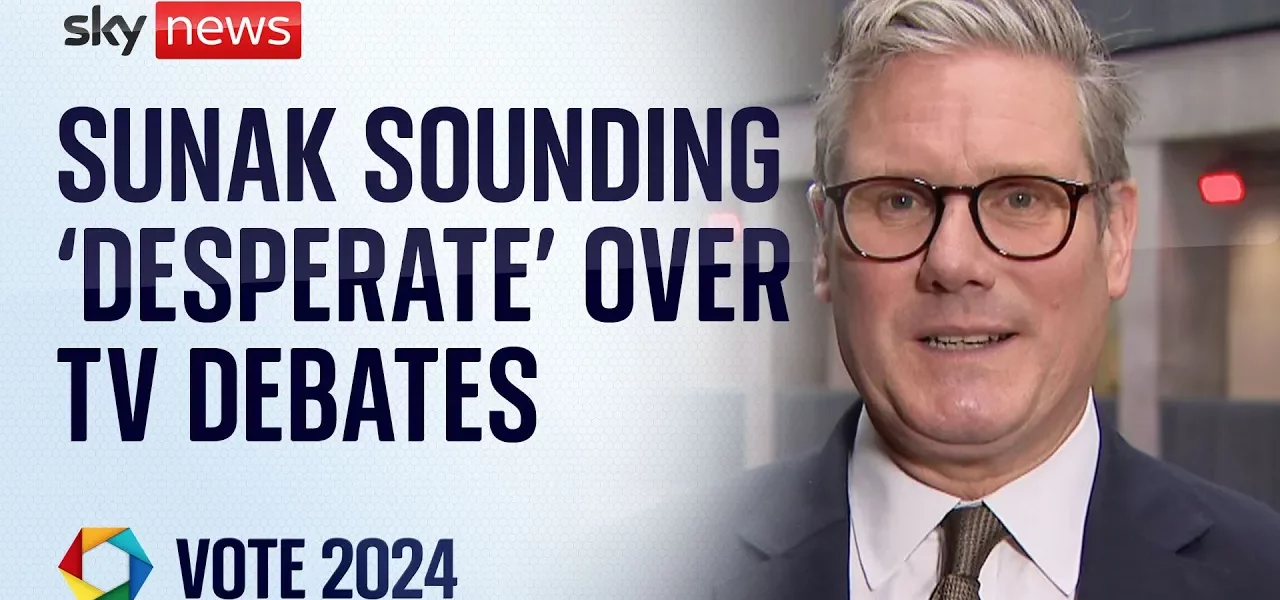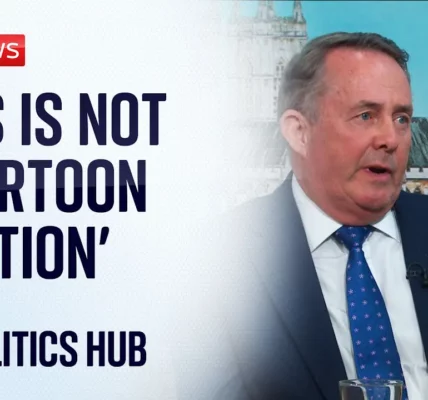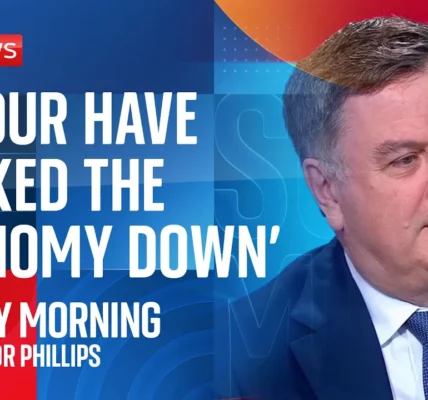Keir Starmer: Labour Party Leader’s Vision and Challenges Ahead

Join us as we explore Keir Starmer’s insights on the upcoming election debates, his policy proposals, and how he plans to address the pressing issues facing the UK. This article delves into the challenges and opportunities presented by his leadership in the Labour Party.
Introduction
Keir Starmer, the current leader of the Labour Party, has been at the helm during a tumultuous political landscape in the UK. As he prepares for the upcoming election cycle, the spotlight is firmly on him to articulate a clear vision for the Labour Party and the country at large. This article captures his recent statements about election debates, energy policy, and his response to criticisms from Prime Minister Rishi Sunak.
The Debate Challenge
In a recent interview, Rishi Sunak called Keir Starmer “spineless” for allegedly avoiding weekly TV debates. Starmer responded to this challenge, emphasizing the importance of engaging directly with voters rather than participating in what he perceives as repetitive debates. He stated:
- Debates are essential to the election cycle.
- He prefers to connect with voters face-to-face.
- He believes Sunak’s arguments lack substance and fail to address the real issues faced by the public.
Starmer has confirmed that there will indeed be debates, albeit with negotiations still ongoing about their format. He expressed a desire to showcase Labour’s positive offerings and to discuss the need for change following 14 years of Conservative governance.
Energy Policy Insights
A significant part of Starmer’s interview focused on energy policy, particularly in light of fluctuating energy prices. He articulated Labour’s plan to establish “Great British Energy,” a publicly owned energy enterprise aimed at:
- Providing clean, British power.
- Reducing energy prices sustainably.
- Creating jobs within the UK.
Addressing the Cost of Living Crisis
Starmer highlighted the ongoing cost of living crisis, asserting that many households continue to struggle with high energy bills and mortgage costs. He expressed a strong commitment to long-term solutions rather than temporary measures:
- Implementing a publicly owned energy company.
- Investing in clean energy technologies.
- Ensuring profits from energy investments benefit taxpayers.
Timeline for Change
When asked about the timeline for the implementation of these changes, Starmer asserted that:
- Energy prices could start to drop by the end of the parliamentary term.
- Establishing Great British Energy could happen swiftly, with preliminary discussions already underway.
- Investment in domestic energy production is crucial for job creation and economic stability.
Policy Adjustments and Priorities
Starmer faced scrutiny regarding his shifting stance on several key policy areas, such as:
- Green investment commitments.
- University tuition fees.
- Tax increases for higher earners.
Balancing Act: NHS vs. Tuition Fees
Starmer addressed the challenging decision to prioritize NHS funding over abolishing tuition fees, stating:
“If you can’t do both, you have to make a choice. I’ve chosen to focus on bringing down waiting lists.”
Commitment to Climate Goals
Despite the criticisms, Starmer affirmed his commitment to achieving 100% clean power by 2030 and outlined the fiscal strategies to support this goal:
- Conducting a thorough review of required investments.
- Maintaining transparency about financial commitments.
- Engaging in a focused effort to mobilize resources for green initiatives.
Labour Party’s Future and Leadership Changes
As the Labour Party prepares for an election, changes in leadership dynamics are notable, especially with former leader Jeremy Corbyn standing against Labour in his constituency. Starmer remarked:
“I made a solemn promise to root out anti-Semitism from our party, and that has guided my leadership.”
Party Unity and Vision
Starmer’s emphasis on a “changed Labour Party” reflects his intent to foster unity and focus on service to the public:
- Rebuilding trust in the party.
- Addressing critical issues impacting communities.
- Promoting inclusive policies that resonate with a broad electorate.
Engagement with Constituents
Starmer’s visit to Glasgow aimed to launch the Scottish campaign and reiterate his vision for Great British Energy, enhancing the party’s presence and commitment in Scotland.
Conclusion
Keir Starmer’s leadership of the Labour Party presents both opportunities and challenges as the election approaches. His focus on direct voter engagement, energy policy reform, and a commitment to addressing the NHS crisis highlights his strategic approach to leadership. As he navigates criticisms and evolving party dynamics, it remains essential for him to communicate a clear and compelling vision for the future. For those interested in following this journey, stay tuned for updates on Labour’s campaign and Starmer’s policies as the general election unfolds.
For more insights into political strategies and electoral challenges, check out our related articles on Energy Policy in the UK and The Future of the Labour Party.
“`




